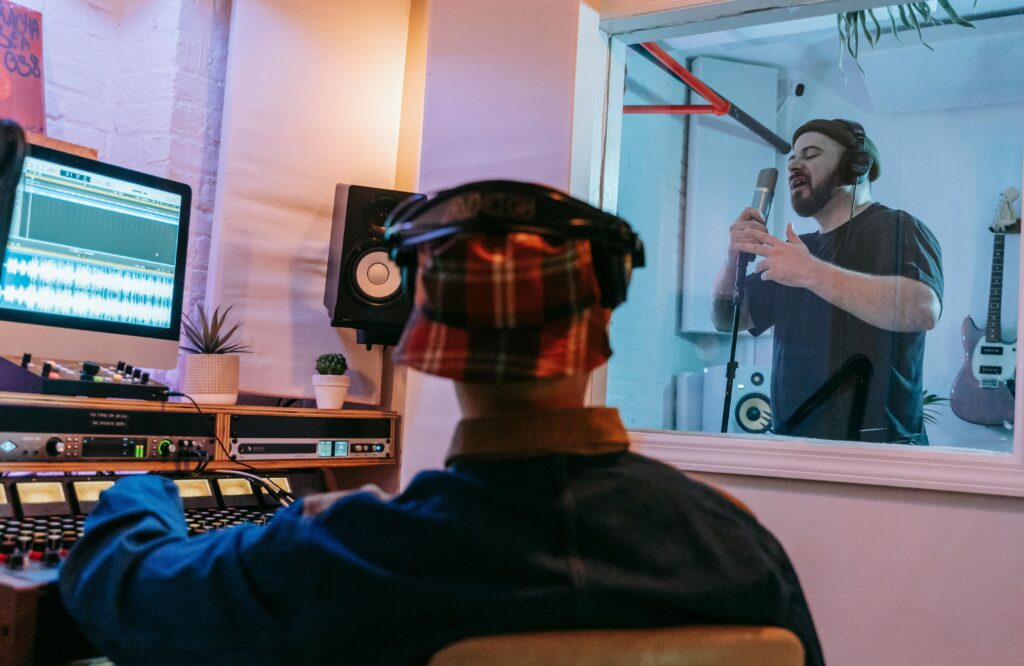10 Undeniable Reasons People Dislike AI Voice Over
If you ever find yourself cringing at the sound of an AI-generated voice, well, you, my friend, are not alone! Sure, technology runs at unbelievable speeds, and these days, AI voice-overs seem to pop up everywhere: from phone menus to audiobooks. But here’s the thing—so many of us can’t get on board with these digital recordings. That does not seem like the natural thing you’d expect, right? But, well, it is true. For most people, AI recordings leave a sour taste in the mouth. Let’s take a look at the top 10 reasons why.
1. Emotionless Flatness: The Robot That Couldn’t Feel
Imagine hearing your favorite story read by a voice with all the emotional range of a spoon. That’s often what you get with AI voices. They might nail the words, but the feeling? Not so much.
From laughter to tears, giving you the “edge of the seat” vibe—human voices do it all. They instill that special ingredient, emotion, into words that make them experiences that breathe on within us.
Think about it: Have you ever heard an AI voice tell a joke that really made you laugh or narrate a sad scene that brought a tear to your eye?
2. The Monotony Blues: Same Old, Same Old
It’s like being stuck in a time loop when you are obliged to listen to the voice of a robot for a long time. The exact intonation, the same pace, over and over again—it’s enough to make one tear his hair out!
Voice actors of humans know how to mix things up. They speed up to get all excited and slow down to create a dramatic effect. It changes the tone for them to suit the mood. It’s a roller coaster ride for the ears!

AI voices are more like a merry-go-round that does not stop. They go round and round in just the same predictable pattern. It’s enough to make one dizzy, or worse, bored out of one’s mind!
3. Where’s the charm?
Do you know how some people possess that particular something that makes them an absolute joy to listen to? That peculiar mix of quirks and charisma that make their voice unforgettable? AI voices are more akin to the flavorless tofu of the audio world: they perform just exactly as they’re supposed to but lack flavor.
Human voice actors bring their whole selves to their work. That personality really bleeds through in a way that makes every performance unique and engaging—like talking to that one friend who always has the best stories.
AI voices, though? They’re as personable as a traffic light. Sure, they give you information, but you are not going to invite them over to dinner anytime soon!
4. Nuance? What Nuance?
Have you ever tried to describe sarcasm to someone who really doesn’t get it? That’s a little of what it’s like listening to an AI voice try to handle subtle vocal nuances.
Human voice actors are masters of the little things—a slight pause for effect, a tiny change in tone that speaks volumes. They can convey layers of meaning with the tiniest inflection.
AI voices are as subtle as a foghorn. They’ll give one the general meaning, but all those delicate shades of meaning? They’re lost in translation. It’s like painting with only primary colors—one might get a general idea but is missing all the beautiful details.
5. One-Trick Pony Syndrome
Imagine your favorite actor could play only one type of role. Pretty dull, right? That’s often the case with AI voices. They’re kind of like that one friend who knows only one joke; the first time, it might be funny, but fast-forward to the tenth—and the hundredth—well, not so much.
Vocal chameleons are professional voice actors. In a snap, they go from gruff, tough detective to bubbly little cartoon character faster than you can say, “Action!” It’s like a whole cast of characters all wrapped up in one amazingly talented package.
AI voices? They’re more like that broken record player that can only play one tune. Sure, they might play it well, but after a while, you’re going to want to hear something—anything—else!
6. Glitches and Hiccups: The AI Blooper Reel
Human voice actors can sometimes miss a line or two, but they quickly regain their footing to keep the performance in motion. It’s like when a pro dancer makes a slight misstep but quickly recovers: you might not even notice it happened.
AI voices, though? When they screw up, it’s like someone slipping on a banana peel in slow motion—you can’t help but notice, and it totally takes you out of the moment. You know, that audio equivalent of a computer blue screen? Frustrating and mood-killing!
7. Creativity Deficit: The Missing Spark
Do you know how sometimes an actor’s interpretation of a line can completely change the understanding of a scene? That little starburst of creativity is what turns good content into something really memorable. AI voices are about as creative as a photocopier.
Human voice actors can exercise their own ideas and interpretations in any project. They can pitch in to tweak a script, do different approaches, and really bring the material to life. It’s comparable to watching a master chef take simple ingredients and turn them into a gourmet meal.
AI voices basically read what is fed to them. There is no ad-libbing, creative license, or flash of brilliance. It’s like microwaving a TV dinner—it may fill your belly, but it’s not going to win any culinary awards!
8. The Customer Service Chill
Remember the last time you called customer service and were caught in that frustratingly long loop of AI prompts? It’s frustrating, isn’t it? AI voices miss something of the magic of the human voice, something that can turn what could have been a mundane interaction into something extraordinary.
Human voice actors can make even the most mundane phone menu sound friendly and helpful. They can modulate their tone to be sympathetic when you call to report a problem or excited when you sign up for some new service. It is sort of like having a helpful friend on the other end of the line.
AI voices? They’re as warm and fuzzy as a block of ice. No matter what you call them, they sound alike: cold, impersonal, and about as comforting as a robot trying to give you a pat on the back.
9. The Question of Authenticity: Can You Trust What You Hear?
In this deepfakes, digitally tricked age, people are becoming warier and warier about what they hear. AI voices are right in the middle of this trust crisis.
There is something undeniably authentic about a human voice actor. If you’re listening to a person who speaks, you know it’s a natural person. There’s trust there that’s hard to fake.
AI voices, however, have a credibility problem. The better this technology gets, the harder it is to know what’s real and what’s artificially generated. It’s a little like trying to spot a counterfeit bill—you might think you know what to look for, but can you really be sure of anything?
10. The Human Touch: The Missing Link
It’s that human-level connection to the listeners that truly sets human voice actors apart. They can make you feel like they’re talking directly to you, sharing a story just for your ears.

AI voices, advanced as they may be, still can’t simulate that sense of human touch. It’s the difference between getting a handwritten letter from a friend in the mail and a mass-produced flyer. One makes you feel special, the other, not so much.
Conclusion
There you go, folks! Ten reasons AI voices sound less than human to most listeners. I’m not knocking AI technology; it is awesome in its place and has its uses. But if you want to create audio that truly resonates, connects, and entertains, well, human-voice actors are still the undisputed champs.
Next time you hear a voice-over that really grabs you, chances are there’s a talented human behind it.

